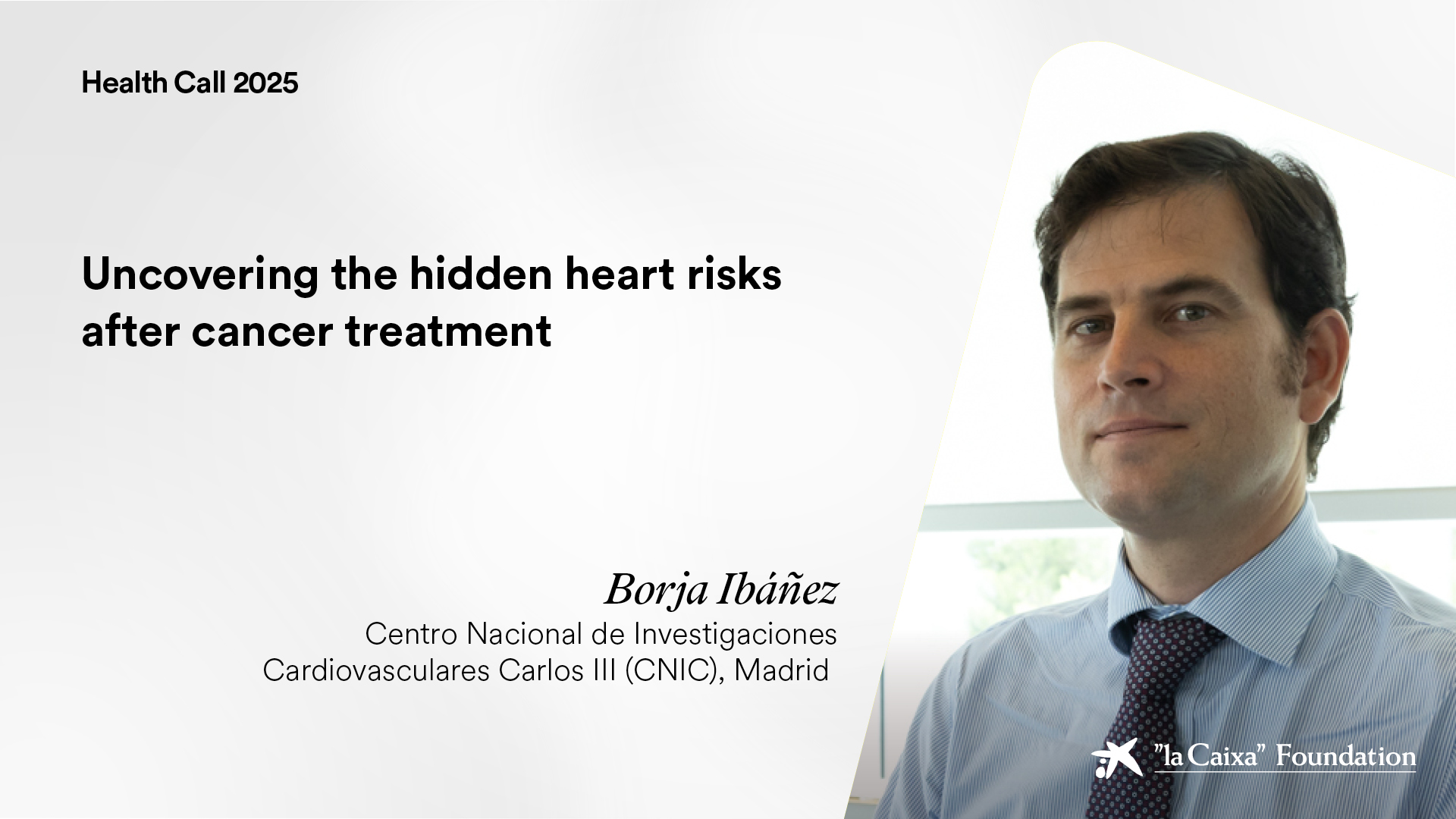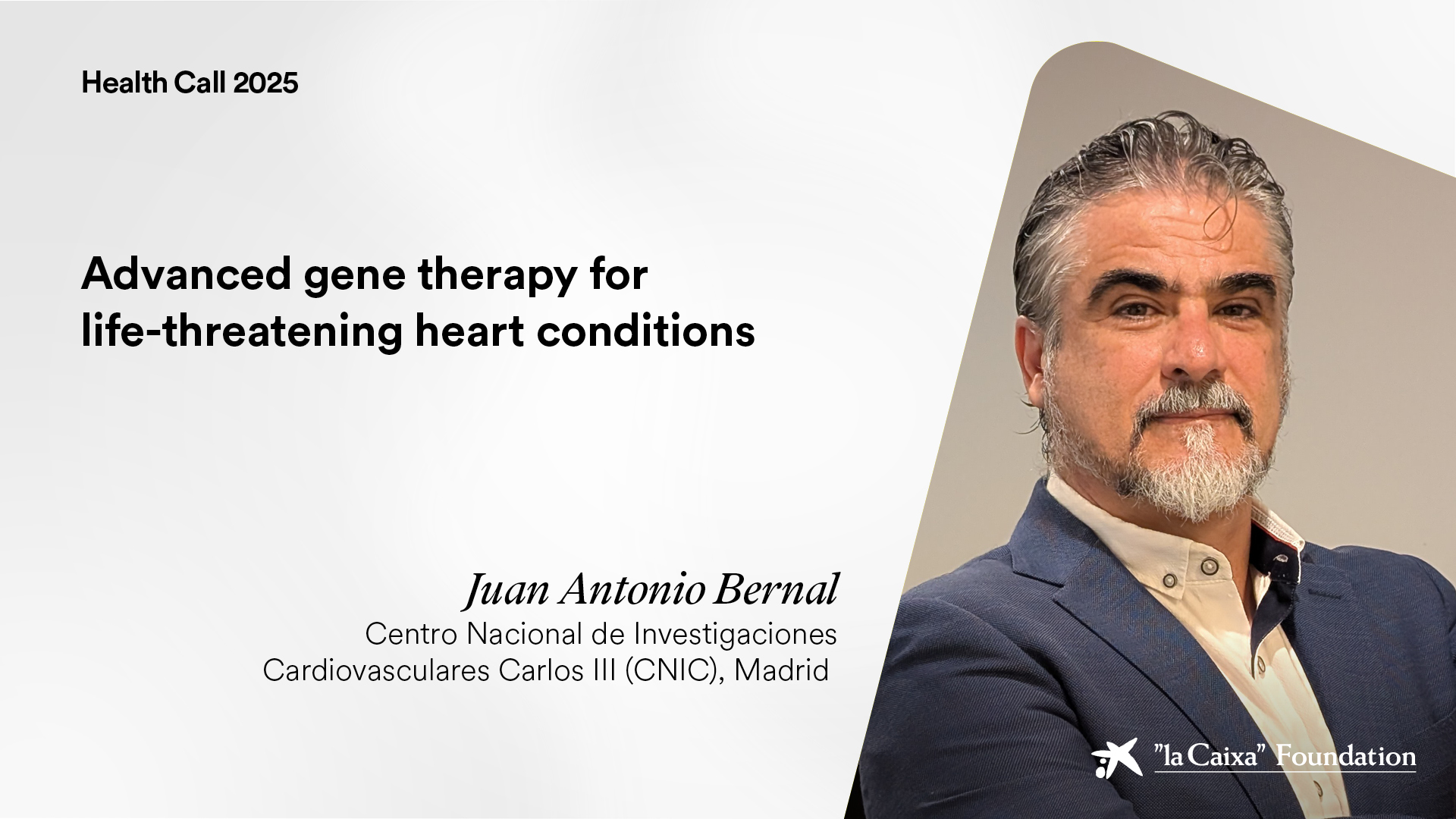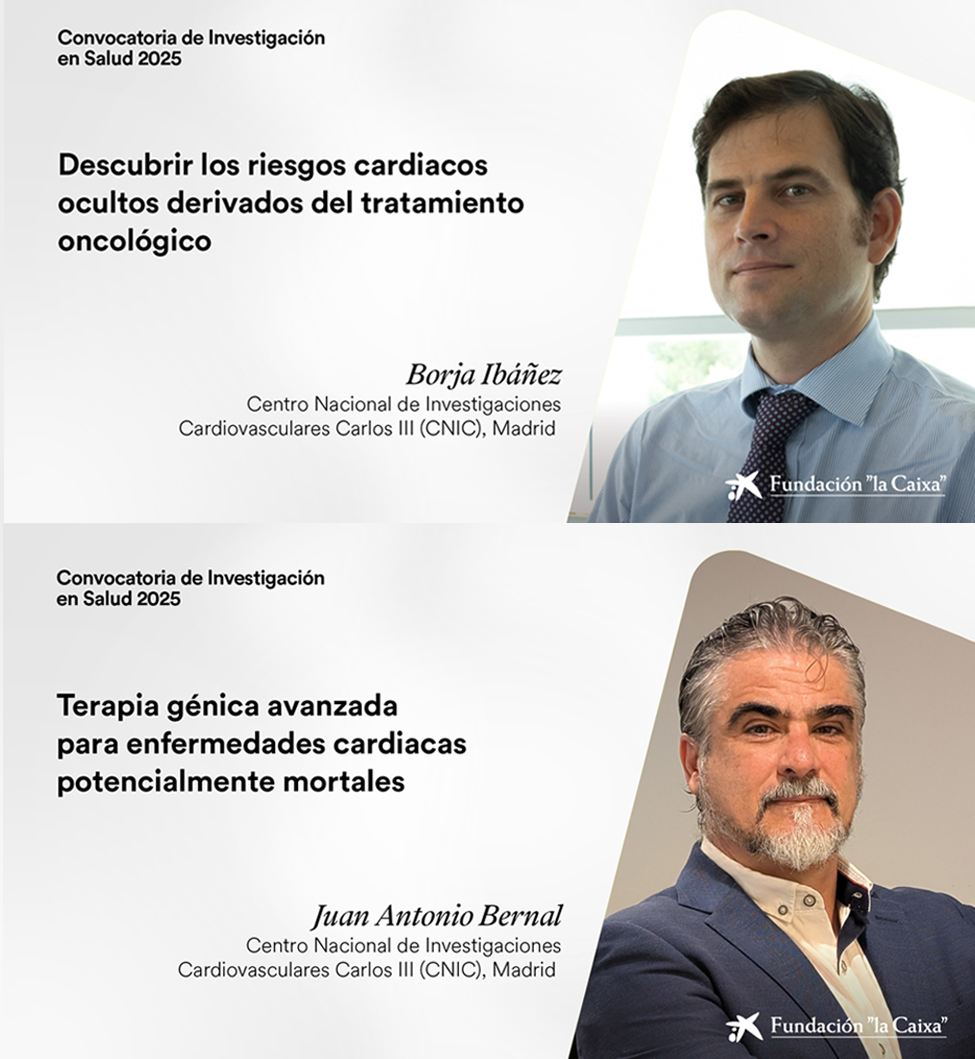Two CNIC projects selected in the la Caixa Foundation 2025 Health Research Call
In this latest round, the la Caixa Foundation Health Research Call has selected 34 new cutting-edge biomedical research projects
Two projects from the Centro Nacional de Investigaciones Cardiovasculares (CNIC) have been selected in the 2025 Health Research Call launched by the la Caixa Foundation.
The selected projects are:
- Anthracycline Legacy in Bone Marrow and Long-Term Cardiovascular Risks in Cancer Survivors, led by Dr. Borja Ibáñez.
- Improving Gene Therapy for Life-Threatening Heart Conditions, led by Dr. Juan Bernal.
In this year’s edition, the Health Research Call of the la Caixa Foundation selected 34 pioneering biomedical research projects, each awarded up to €1 million. The projects are led by 25 Spanish research centers, universities, and hospitals, and 9 Portuguese institutions.
A total of 714 proposals were submitted to this eighth edition of the call, which focuses on several major health challenges: neuroscience, cardiovascular and metabolic diseases, oncology, infectious diseases, and enabling technologies applicable to these areas.
Àngel Font, Deputy General Director of Research and Fellowships at the la Caixa Foundation, remarked: “Biomedical research is one of the most powerful ways to improve people’s lives. The 34 funded projects address highly diverse challenges from different perspectives, yet they all share three essential foundations needed to achieve a more hopeful future for patients and their families: collaboration, talent, and innovation.”

Anthracycline Legacy in Bone Marrow and Long-Term Cardiovascular Risks in Cancer Survivors
- Leader: Borja Ibáñez, Centro Nacional de Investigaciones Cardiovasculares Carlos III (F.S.P.), Spain
- Partner institutions: Centro Nacional de Investigaciones Oncológicas (CNIO) (Dr. Felipe Cortés) and Hospital Universitario La Paz, Madrid (Dr. Teresa López-Fernández).
- Budget: €999,500
Thanks to major advances in cancer treatment, more people are surviving the disease than ever before. However, many survivors face a higher long-term risk of cardiovascular problems—especially if their treatment included a widely used class of chemotherapy drugs called anthracyclines. While the short-term cardiac effects of these drugs are well known, the long-term damage they cause—often silent for decades—remain poorly understood.
This project aims to uncover how anthracyclines leave a hidden “legacy” in the body that can lead to heart failure years after treatment. According to Dr. Ibáñez, researchers believe that anthracyclines induce persistent changes in the heart and bone marrow that remain latent until another stressor, such as aging or high blood pressure, activates them. “Using advanced imaging, genetic analysis, and animal models, we will study how these changes develop over time.”
A key focus is the bone marrow, which produces immune cells that influence cardiovascular health. “We will investigate how anthracyclines may reprogram these cells in ways that increase long-term cardiovascular risk, and whether specific genetic mutations make some people more vulnerable to these effects,” explains Dr. Ibáñez.
By combining experimental research with studies in cancer survivors, the project aims to identify early markers of risk and develop personalized strategies to prevent heart problems before they arise. “This could lead to improved screening tools, new treatments, and a better quality of life for millions of cancer survivors,” concludes Dr. Ibáñez.

- Leader: Juan Antonio Bernal, Centro Nacional de Investigaciones Cardiovasculares Carlos III (F.S.P.)
- Budget: €498,352
Arrhythmogenic cardiomyopathy (ACM) is a rare inherited heart disease characterized by a high risk of ventricular arrhythmias. Despite its low prevalence in the general population, it is the second most common cause of sudden cardiac death in young people and athletes.
Although the principal gene involved is known, more than 1,000 different mutations have been identified, posing a major challenge for developing effective therapies. Current treatments help control symptoms but do not halt disease progression, underscoring the urgent need for innovative therapeutic approaches.
The Improving Gene Therapy for Life-Threatening Heart Conditions project aims to design new gene therapies that overcome the limitations of conventional strategies, which focus solely on adding a functional gene copy. As project leader Dr. Bernal explains, the proposed advanced therapies are aimed at “addressing complex mutations more precisely and effectively.”
The team is developing the first experimental model of ACM. “This model will allow us to study the disease in much greater detail and evaluate potential treatments, assessing their ability to reduce symptoms and slow progression,” says Dr. Bernal.
These advances, he adds, “could transform treatment options for patients with ACM and set an important precedent for precision therapies targeting other inherited cardiac diseases.”
By overcoming the inherent limitations of current gene therapy approaches, “the project seeks to offer more effective alternatives for high-risk patients, advance the field of cardiovascular gene therapy, and open new horizons of hope for patients and their families.











